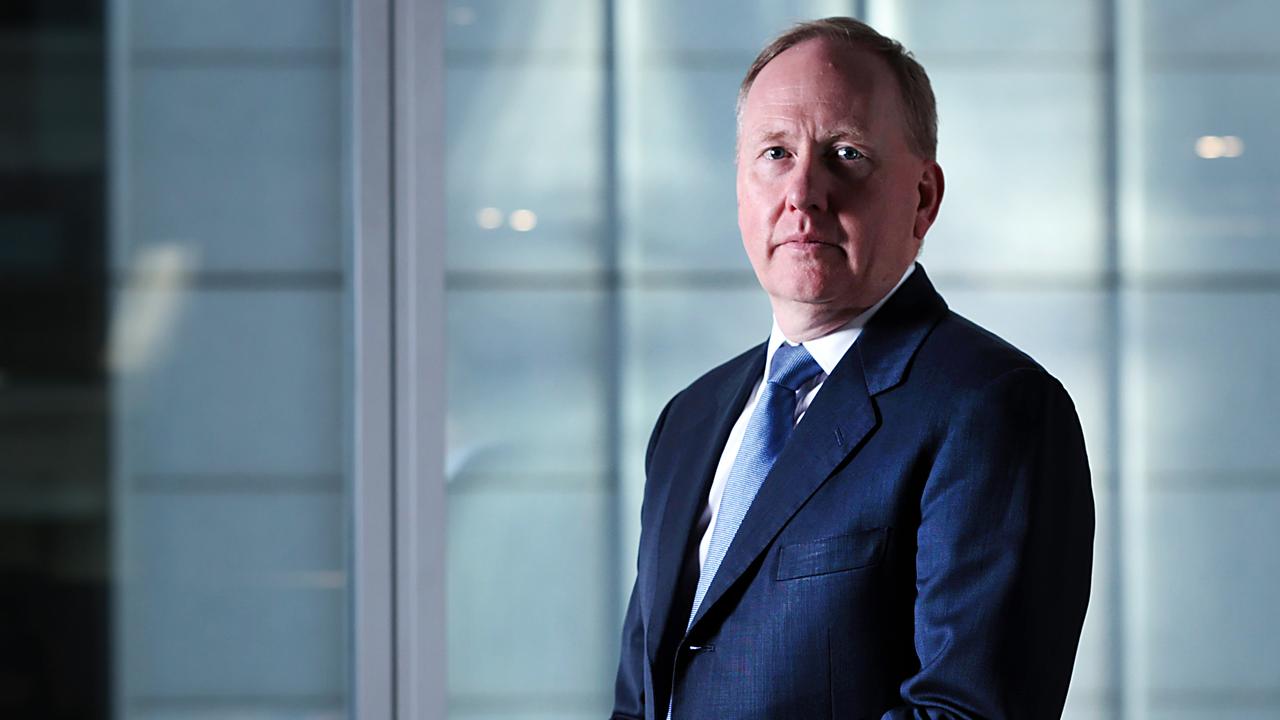Strangely, the Prime Minister’s horror week over Qantas upgrades barely registered at the Guardian Australia
Controversial claims regarding the Prime Minister’s Qantas upgrades had every news outlet frenzied last week. Not at the Guardian, however, where it barely registered.
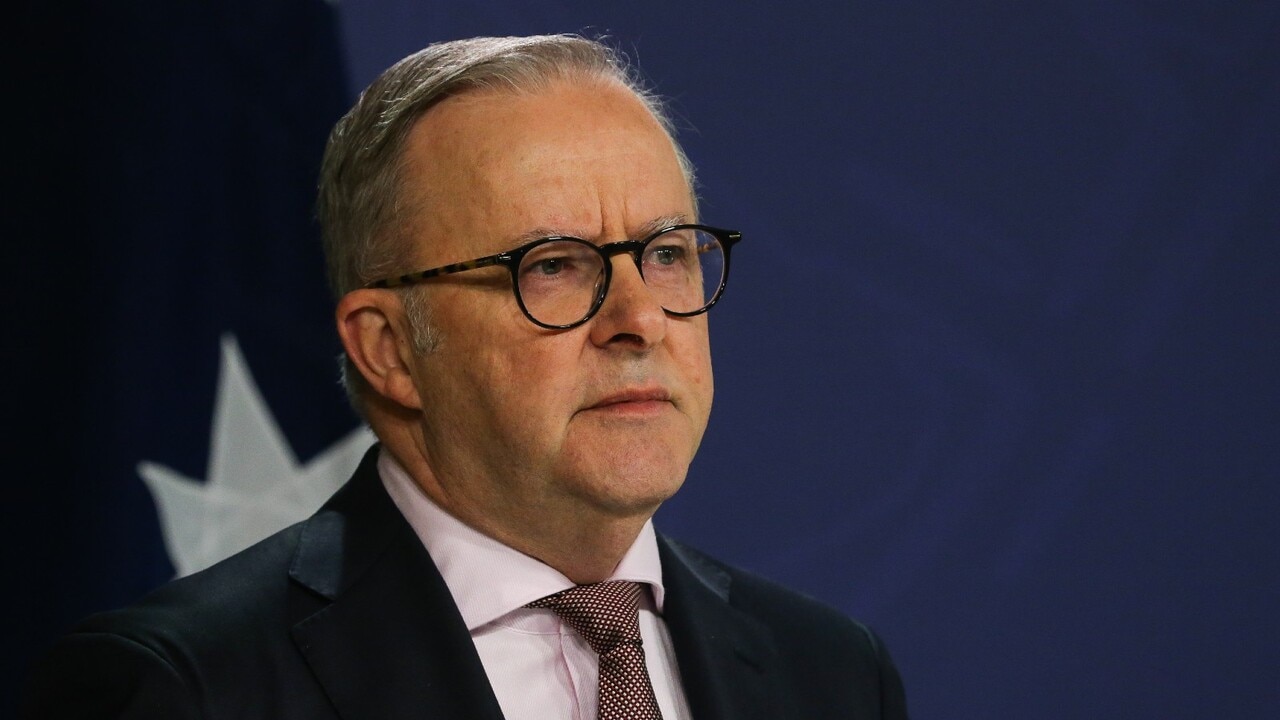
Business
Don't miss out on the headlines from Business. Followed categories will be added to My News.
Mainstream media outlets were in a frenzy last week over the revelations by former Australian Financial Review columnist Joe Aston that Anthony Albanese had contacted ex-Qantas boss Alan Joyce directly for flight upgrades.
The bombshell claim, published in Aston’s new book The Chairman’s Lounge: The Inside Story of How Qantas Sold Us Out, set the political agenda for the entire week and clearly rattled the Prime Minister, who was just climbing off the canvas after copping a belting over the tone-deaf purchase of a luxury $4.3m home on the NSW Central Coast the week before.
It took days for Albo to finally say – categorically – that he did not request upgrades from Joyce, by which time the story had played out on the nation’s front pages for the best part of a week.
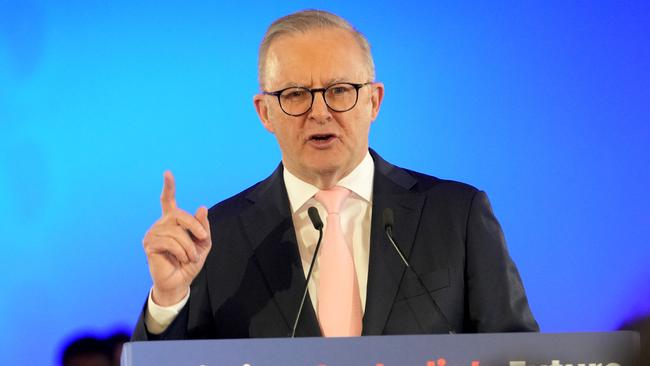
Strangely, though, the Prime Minister’s horror show barely registered at the Guardian Australia.
During the height of the controversy last Wednesday, the Guardian prioritised a story about EV utes and another about the ABC’s popularity on TikTok. There wasn’t a single story on the Guardian’s entire homepage that referenced the Prime Minister’s rolling crisis. How could this be?
Diary wonders if the masthead’s treatment of the story would have been different if Peter Dutton were in Albo’s shoes.
Diary contacted Guardian Australia editor Lenore Taylor on Sunday to find out why the website had shown little interest in the controversy but we didn’t hear back.
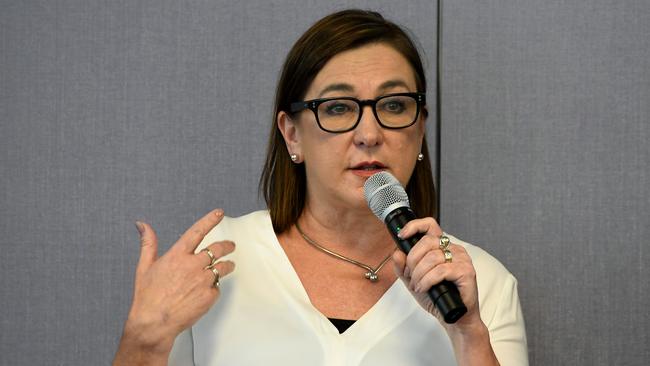
Late last week, as the Albo Upgrade caravan was rolling on, the masthead finally pumped some oxygen into the story on its podcast with political editor Karen Middleton, who told listeners that while she was not a member of the Chairman’s Lounge she once was “invited in” by a minister in the Albanese government.
“The only time they (the politician) had available was when they were waiting for a plane so they invited me in,” she said.
“I had to drive out to Canberra airport and go specifically into the Chairman’s Lounge and interview that person, but it’s always funny, people coming in the door and seeing a journalist sitting in there, their eyebrows go up because they tend to think it’s a journalist-free zone.”
Aunty’s city slickers
The ABC’s latest annual report quietly was tabled in parliament last week with little fanfare from the broadcaster’s hardworking communications department – possibly because the report wasn’t exactly overflowing with healthy numbers.
Audience numbers were down across television, radio and digital. But hey, they’re killing it on TikTok!
However, one interesting statistical chapter caught our eye.
Of the ABC’s 5114 employees, 4520 of them (or 88.4 per cent) work in metropolitan locations.
Furthermore, the state-by-state breakdown of ABC staff shows almost half (48.2 per cent) of the media organisation’s staff live and work in NSW, with Victoria housing 19.1 per cent of Aunty’s employees.
So according to our calculations, more than two-thirds (67.3 per cent) of ABC staff live and work in NSW or Victoria, even though only 55 per cent of Australians reside in those two jurisdictions.
And when you account for the metro-regional imbalance, as mentioned above, the concentration of staff is even more pronounced. They overwhelmingly reside in Sydney and Melbourne.
Of course, the numbers confirm what we already know in terms of the ABC’s urban-heavy delegation of its resources.
But the stats also highlight the extent of the challenge faced by ABC chairman Kim Williams, who often speaks about the public broadcaster’s critical presence in the bush.
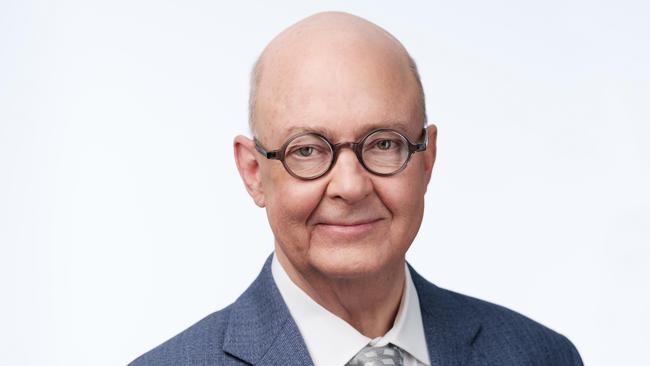
Just last week Williams addressed the issue during his delivery of the 2024 Menzies Oration in Ballarat.
“The need for a strong regional ABC is clear,” Williams said in his speech. “We’re a highly urbanised nation, yes, but I think many Australians don’t realise just how many of us live outside the capital cities.
“The figure is 28 per cent. Some seven million of us. Servicing those citizens, inclusively, is a big part of what the ABC does.”
Nine still spinning
After months of shocking headlines involving claims of bullying, sexual harassment and misconduct within Nine, the trouble-plagued media company is on the hunt for a new spinner.
Nine’s communications boss Victoria Buchan was made redundant last month in a “restructure” at the company and the new role being spruiked online is for a director of regulatory, public affairs and communications.
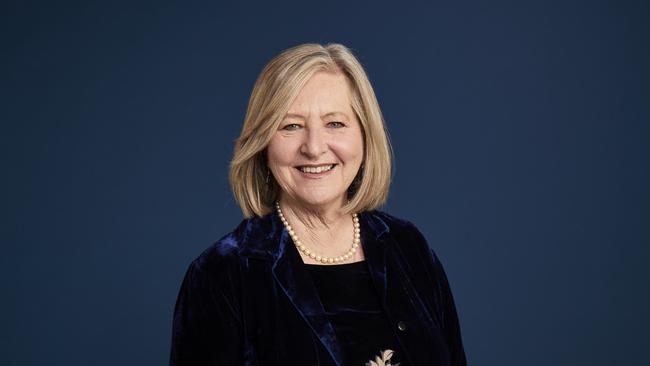
Whoever wrote the job advertisement didn’t sugar-coat the fact that the company was riddled with problems, telling potential applicants they would be required to “develop and implement crisis communication plans to manage and mitigate risks”.
The ad also tells applicants their job will be to “ensure that Nine’s public positioning is positive”. Good luck!
In the past eight months, the company has seen the departure of chairman Peter Costello, chief executive Mike Sneesby, disgraced news and current affairs bossDarren Wick and Buchan.
But there’s no need to rush to get your resume in shape. According to the ad at LinkedIn, “applications close 11th November, 2025”.
Surely a typo. Or maybe not? The hunt may take a while.
De Ceglie talks big
Humble pie wasn’t on the menu when Seven West Media’s news boss Anthony De Ceglie addressed the Melbourne Press Club last Tuesday.
Amid some well-directed barbs at social media platforms, and his insightful take on the untold damage that big tech companies were inflicting on journalism, De Ceglie, the former editor-in-chief of The West Australian, also found time to lavish praise on himself and ruffle a few industry feathers.
Before an audience of about 70-odd media types, De Ceglie – who since his arrival at the Seven Network six months ago has sacked several journalists – articulated a few of his personal mantras, including his enforcement of a “no dickheads” policy.
Ouch! Imagine how that went down with recently departed staff, many of whom left the company without a blemish on their record.
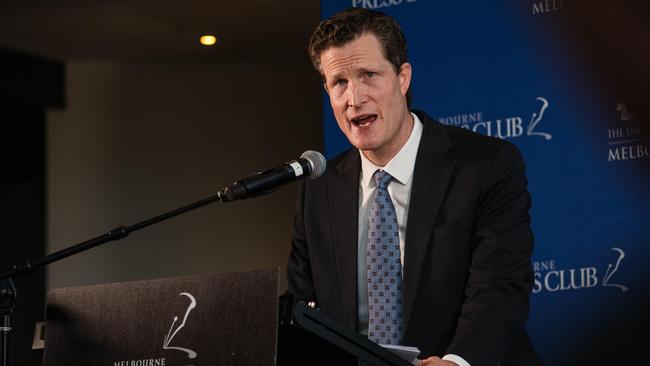
De Ceglie, 38, also spoke of the moments when, under his editorship, The West Australian’s innovative front pages “became a talking point for the entire world”.
The entire world? Is there a fact checker in the house?
De Ceglie is one of Kerry Stokes’s favourite lieutenants, with the billionaire plucking him from relative obscurity to lead his West Australian Newspapers division in 2019 before handing him the key role of Seven news boss in April.
Diary wonders what Stokes thinks of De Ceglie’s repeated insistence that TV ratings aren’t such a big deal.
History shows that when ratings slide, advertisers get skittish and head for the door.
“My advice for the (editorial) teams has been to stop worrying about the ratings,” De Ceglie said in his speech last Tuesday.
“The job is to give a voice to the voiceless and hold the powerful to account – it’s not to worry about ratings and set-top boxes.”
For now, though, the strategy seems to be working.
Said De Ceglie: “For those keeping count, since we introduced star signs and satire (into news bulletins), our ratings have gone up, not down.”
Anchors away
While we’re on the subject of De Ceglie’s Melbourne Press Club lunchtime address – which Diary attended – it was curious to see who was sitting at the head table with the news boss.
Among those to accompany him were the station’s newest rising star, newsreader Karina Carvalho, who joined Seven’s Melbourne newsroom in July after quitting the ABC following a 17-year career at the public broadcaster.
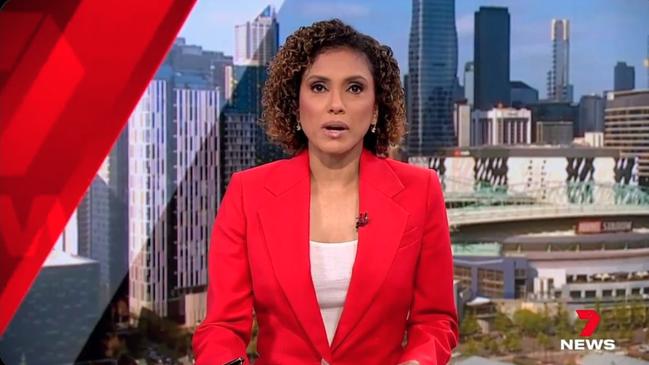
Carvalho’s arrival has caused a stir in the Melbourne newsroom given she is widely tipped to be the 6pm newsreader-in-waiting. It’s just a matter of when, not if.
For now, Carvalho is busy reading the 4pm news and recently was chosen, alongside Michael Usher, to anchor Seven’s national coverage of King Charles and Queen Camilla’strip to Australia.
Also on De Ceglie’s table was news director Chris Salter, who packed his suitcases and moved from Adelaide to run the Melbourne newsroom mid-year after former news boss Shaun Menegola resigned in May.
But the notable absentees included weekend newsreader Rebecca Maddern, who later that evening was posting selfies with the Melbourne Cup.
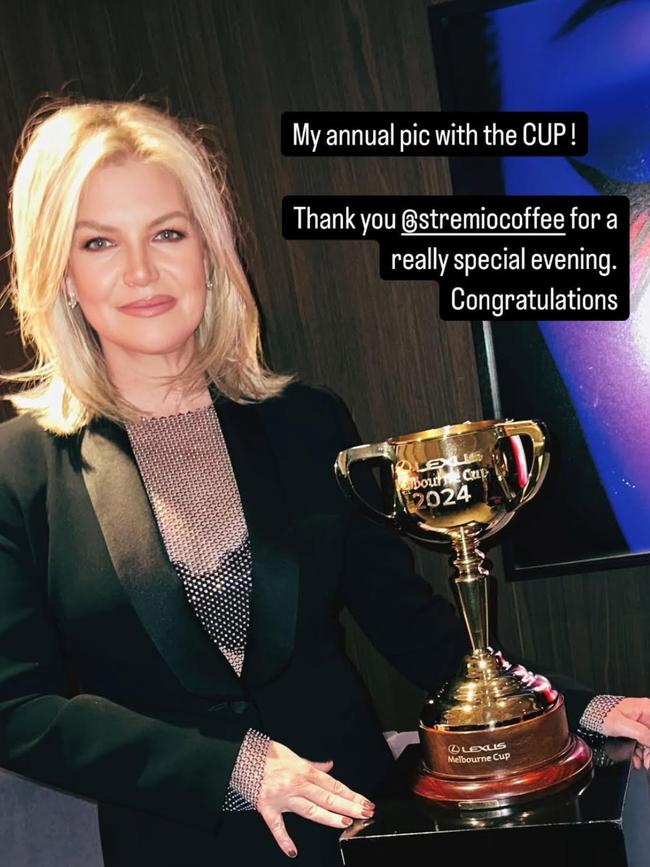
Also absent was Seven’s weekday newsreader Peter Mitchell and Maddern’s co-presenter Mike Amor, but both later fronted the 6pm and 4pm news bulletins respectively.
Diary asked De Ceglie if Seven’s line-up for its 6pm news bulletin would change before the beginning of the 2025 ratings year, but he remained tight-lipped.
“Well I’m going to completely be a wimp and defer to Chris (Salter), you can ask him later,” De Ceglie said.
His response no doubt caught the attention of plenty in the room, including rival Melbourne Nine news director Hugh Nailon, who has had plenty of success since overhauling his newsreading line-up at the beginning of the year, having installed Alicia Loxley and Tom Steinfort as weekday co-presenters and moving veteran newsreader Peter Hitchener to weekends.
De Ceglie told the room: “At the end of the day what we’re doing in Melbourne right now is working. Since Chris has come on board we have gone from losing on average by 50,000 (viewers) every night to winning every other night … so it’s a strategy that’s working. We’re bringing in fresh faces like Karina.”
De Ceglie also gave a shout-out to Seven’s state political reporter Sharnelle Vella, who was seated on the main table with the boss. De Ceglie said Vella “breaks a scoop every night”.
Age flogs Leunig
Legendary cartoonist Michael Leunig says he’s “insulted” that just three months after The Age sacked him, the newspaper is spruiking his work to make a quick buck.
Leunig was given his marching orders by editor Patrick Elligett in August in what the popular media veteran colourfully described at the time as a “throat-cutting exercise”. It appears time hasn’t healed the wounds.
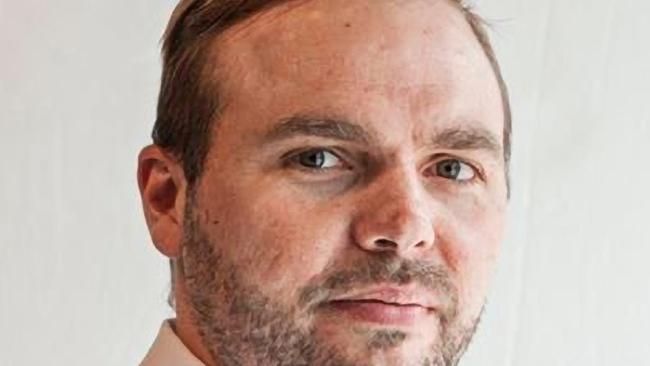
The Age is promoting Leunig’s much-loved calendar in its newspapers, encouraging readers to buy it online for $19 – including delivery.
Diary contacted the 79-year-old cartoonist to find out what he thought about the promotion of his work by the media company that sacked him. He was far from impressed.
Leunig described The Age’s calendar hustle as “crass”, “opportunistic” and “contradictory”.
“It’s a bit odd – on one hand they want me, but on the other hand they don’t want me,” Leunig said.
“I think the paper lacks identity and this is part of it – the mixed messages.
“They are saving money by getting rid of me as a cartoonist but making money with the calendar.”
The Age’s Leunig advertisement describes the axed cartoonist’s calendar as “an annual favourite” but unsurprisingly makes no mention of the fact he was given the punt just a few months ago by the Nine Entertainment-owned publication.
“There’s a lot of calendars out there,” Leunig said.
“It works and it’s successful for them, it makes them money, so why did they get rid of me?”
He recalled when Elligett phoned him up earlier this year to say his days at The Age were over.
“He rang me up and said, ‘I’m a fan but I’m sacking you’,” Leunig said.
“I don’t think Patrick’s future is great … he will get a phone call one day too.”
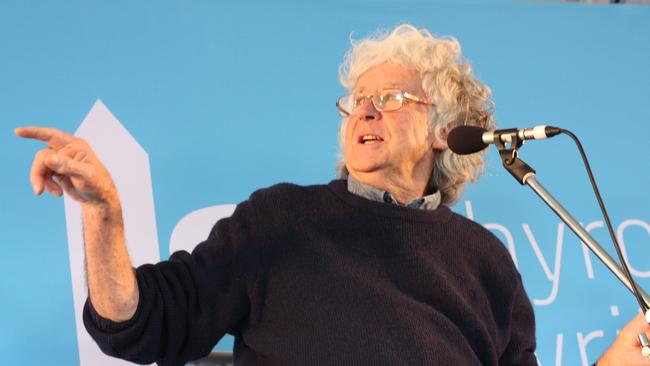
Leunig, who lives in regional Victoria, has been producing his calendars for more than 20 years and expects this will be the last one he does that has any association with The Age.
He is paid for his illustrations for the calendar but makes no money from the sales made.
At the height of the Covid-19 pandemic many of Leunig’s cartoons that criticised Victorian premier Daniel Andrews over his harsh lockdown measures were not published by the newspaper, which at the time was edited by Gay Alcorn.
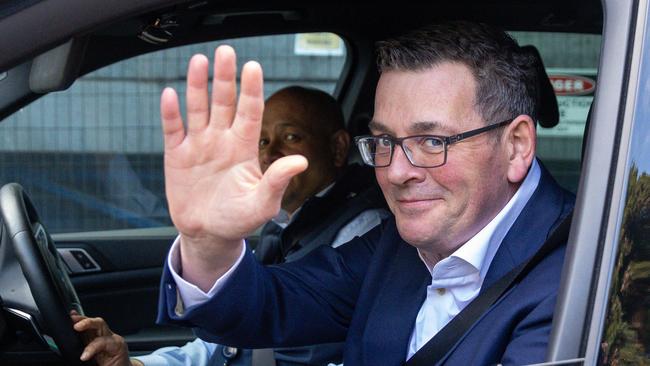
There was speculation this was done to prevent upsetting the media outlet’s left-leaning audience, which was broadly in favour of lockdowns.
Leunig’s work subsequently was shifted from the news pages of the paper to the weekend Spectrum section, for which he filed just once a week, before he eventually was told his services were no longer required.
So, does Leunig have any regrets about his departure from The Age? No.
“Being associated with The Age now isn’t the best thing in the world,” Leunig told Diary.
“I’m not a great fan of the paper, particularly being away from it now.
“I’ve had enough of that Age that I don’t recognise any more, that sort of rag, it’s a bit pathetic.
“I was loyal in the sense of providing my weekly cartoons but I was increasingly disillusioned with what the paper had become.”
Since being sacked, Leunig recently self-published a book called Newspaper Poems.
“I’m increasingly becoming used to publishing my own stuff now,” he said.
Diary contacted Elligett to ask about The Age’s promotion of the Leunig calendar but he declined to comment.
Food for thought
The Sydney Morning Herald’s Good Food Guide could be feeding off scraps this year.
With the annual publication due for release later this month, one of the nation’s biggest hospitality groups, Merivale, headed by chief executive Justin Hemmes, is facing possible exclusion from the industry bible because of allegations of inappropriate behaviour across the company’s 70 hospitality venues, most of which are in NSW.
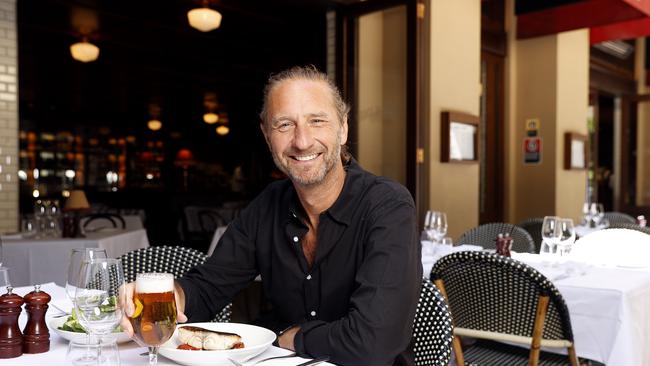
The investigation into the company’s workplace culture was published in the Herald.
In September, the Good Food Guide announced that another hospitality company, the Swillhouse group – which operates six popular venues in Sydney – had been excluded from the annual dining and drinking list because of the alleged sexual assault of some female staff.
A spokesperson for Nine said: “The Sydney Morning Herald and The Good Food Guide continue the investigation into Merivale and the broader hospitality industry.”
Nick Tabakoff is on leave.




